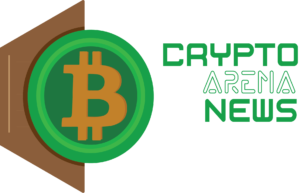Leveraging Blockchain Technology for Enhanced Healthcare Data Security and Interoperability
Blockchain can revolutionize healthcare by improving data security and interoperability. Patient records stored on the blockchain are encrypted and accessible only to authorized parties, ensuring privacy and reducing the risk of data breaches.
Healthcare Industry
In recent years, the healthcare industry has experienced significant advancements, thanks to the transformative role of technology in patient care and data management. However, the increasing generation and sharing of sensitive medical data have raised concerns about data security and interoperability.
Fortunately, blockchain technology offers great promise in addressing these challenges by providing enhanced data security and facilitating seamless interoperability between healthcare systems. This article explores the potential of blockchain in revolutionizing healthcare, with a focus on its ability to improve data security and promote interoperability.
Blockchain Technology in Healthcare:
One of the primary advantages of blockchain technology in healthcare lies in its capacity to enhance data security. Patient records stored on a blockchain are encrypted and distributed across a network of computers, making it nearly impossible for unauthorized individuals to access or tamper with the data. The decentralized nature of blockchain ensures that there is no single point of failure, significantly reducing the risk of data breaches and unauthorized modifications.

Furthermore, blockchain employs advanced cryptographic techniques, such as digital signatures, to verify the authenticity of data and ensure its integrity throughout its lifecycle. This immutability of data builds trust and enables healthcare providers to have complete confidence in the integrity of patient records, facilitating accurate diagnoses and effective treatment plans.
Protecting Patient Privacy:
Maintaining patient privacy is crucial in healthcare, and blockchain technology offers robust solutions to safeguard sensitive medical information. With blockchain, patient data can be securely stored and accessed only by authorized parties, reducing the risk of unauthorized access and breaches.
By leveraging cryptographic techniques, such as public and private key pairs, blockchain ensures that patients have control over their data, granting or revoking access rights as needed. This empowers individuals to maintain ownership of their health information and share it with healthcare providers on a need-to-know basis, fostering a patient-centric approach to data management.
Promoting Interoperability:
Another significant challenge in healthcare is the lack of interoperability among different systems and healthcare providers. Patient data is often fragmented across various electronic health record (EHR) systems, hindering the seamless exchange of information and potentially compromising patient care. Blockchain technology can serve as a transformative solution by enabling secure and standardized data exchange across disparate systems.
Through blockchain-based smart contracts, healthcare providers can establish predefined rules and protocols for sharing patient data. These smart contracts ensure that data is exchanged in a standardized and interoperable format, enabling seamless integration and collaboration among different healthcare entities. By promoting data interoperability, blockchain streamlines healthcare workflows, reduces administrative burdens, and improves the quality and continuity of care.
















